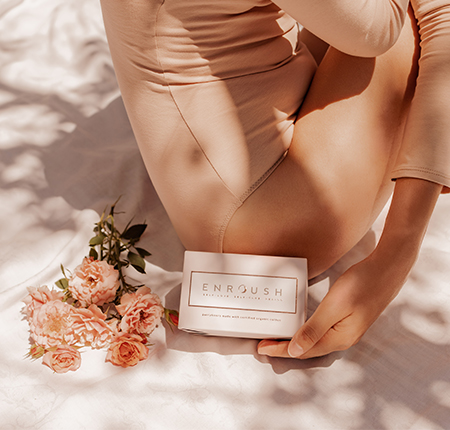
Cystitis (Infection / Cold in the ovaries): causes and treatment
Most common in women, cystitis is inflammation of the bladder caused by a urinary tract infection.
What is Cystitis?
Cystitis causes pain and, when left untreated, can affect the kidneys, turning into a serious problem. What you need to know is that most often, this inflammation is caused by bacteria that are found on the skin, vagina or rectum - and that multiply in the bladder. This is how the condition and its unpleasant symptoms appear.
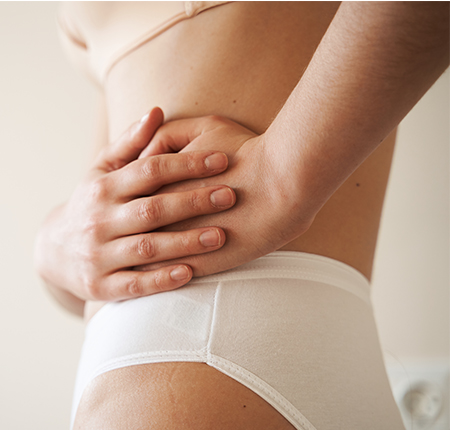
Cystitis (Ovarian cold) - Symptoms
Although the symptoms of cystitis are different from one person to another, the most common manifestations can be:
pain when urinating or difficulty urinating
frequent urination
the presence of pus or blood in the urine, the dark color of the urine
lumbar pain
small amount of urine passed each time
pain during intercourse
lack of energy
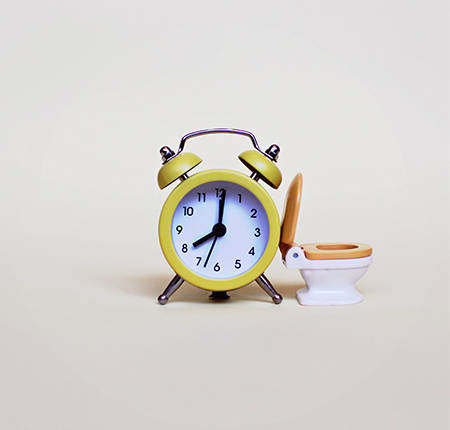
The causes of cystitis type infection
Cystitis occurs when bacteria from outside the urinary tract reach the urethra and multiply. So, bacterial cystitis is most often caused by Escherichia-Coli, but it is not the only cause: cystitis can also be caused by Salmonella, Chlamydia or others. The most common such bacteria multiply after a sexual act, but this is not a rule, because bacterial cystitis can also occur in sexually inactive people.
On the other hand, other types of factors can cause inflammation: kidney pathologies, such as kidney stones, genital conditions, such as an enlarged prostate, or diabetes.
Cystitis in pregnancy
The need to urinate frequently can be a symptom of pregnancy, and because of this, sometimes diagnosing cystitis (especially a mild or moderate form) can be difficult – but not impossible. It is best to consult a doctor if you have the symptoms of cystitis, and he will recommend a urine test that will clarify things quickly.
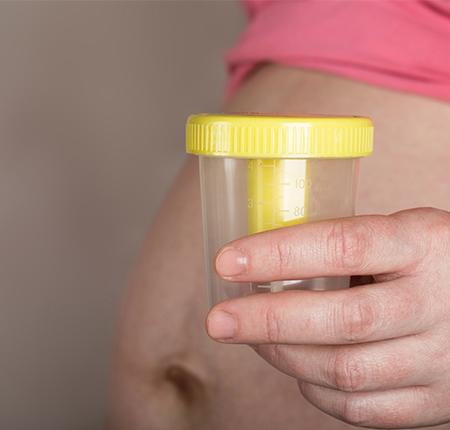
Also during pregnancy, some women do not have the symptoms of cystitis, although they have a urinary tract infection. Therefore, cystitis can also be asymptomatic, but it is essential to be treated during pregnancy. It is called "asymptomatic bacteriuria" and is often associated with premature birth.
Cystitis in children & babies
Not only women can suffer from urinary tract infections (UTIs). Cystitis also occurs frequently in children or babies, when bacteria reach the bladder. The infection is most commonly caused by E.coli bacteria and does not go away on its own, but it can be treated and cured.
Although, in the case of small children, cystitis can be difficult to detect due to the less specific symptoms. Most of the time, fever is the only symptom, and others may include:
Vomiting
Pain when urinating
Irritability
Increased need to urinate
Wet the bed
Lumbar pain
Cloudy, pungent-smelling urine
If your child is suffering from these symptoms and has an unexplained fever, take him to the nearest hospital.
Cystitis in men
Men can get urinary tract infections too, and these are usually classified as complicated infections. Symptoms may include urgency, frequency, and burning when urinating.
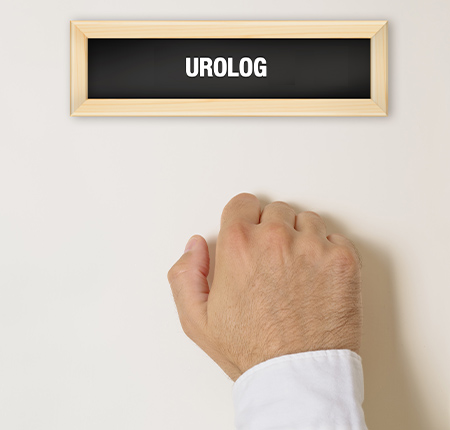
Although women are 30 times more prone to urinary tract infections than men, according to studies, this does not mean that men do not have cystitis at all. A urinary tract infection in men becomes more common with age, and one reason is that older men are more likely to develop a noncancerous enlargement of the prostate gland called benign prostatic hyperplasia. The prostate wraps around the neck of the bladder where the urethra connects to the bladder. Prostate enlargement can compress the bladder neck, making it difficult for urine to flow freely. If the bladder does not empty completely, bacteria that are normally eliminated with urine can remain there and multiply, causing cystitis.
Risk Factors for Cystitis (Ovarian Cold)
Although researchers still don't know exactly why cystitis is so common in women, it's thought to be because a woman's urethra is short and its opening is close to the anus, making it easier for bacteria to travel from the colon to the anus. bladder. But certain risk factors increase the likelihood of a urinary tract infection. These include:
certain medications or treatments
intimate hygiene products containing toxic ingredients
sexual contact
urinary flow obstructions (kidney stones, enlarged prostate)
weakening of the immune system
menopause
Types of cystitis
Cystitis can be of two types:
bacterial cystitis
non-infectious cystitis
Moreover, depending on the duration of the condition, cystitis can be:
- Acute (short-term)
- Chronic (lasting more than three months)
Bacterial cystitis
Bacterial cystitis occurs when bacteria enter the urethra or bladder and cause an infection. It can also result when the bacteria that normally grow in your body become out of balance following the use of gels or menstrual products that contain chemicals.
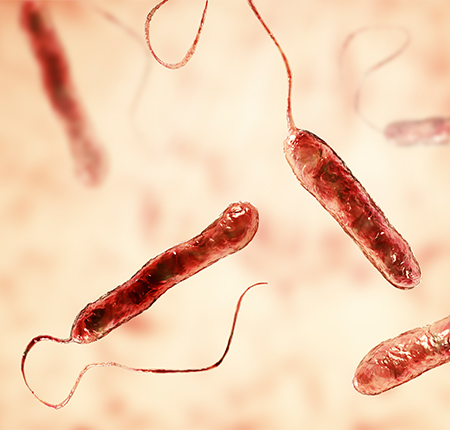
It is extremely important to treat a bladder infection! Because if the infection spreads to the kidneys, it can become a serious health problem.
Drug-induced cystitis
Certain medications can cause inflammation of the bladder. Why? Medicines pass through your body and eventually exit through the urinary system: but some can irritate the bladder! For example, the chemotherapy drugs cyclophosphamide and ifosfamide can cause cystitis.
Radiation cystitis
Also closely related to treatments, radiation therapy is another risk factor that can cause cystitis. Radiation therapy is used to destroy cancer cells and shrink tumors, but it can also damage healthy cells and tissues. Radiation treatment in the pelvic area can cause inflammation of the bladder.
Cyst from a foreign body
Prolonged use of a catheter (a tube used to facilitate the release of urine) can increase the risk of bacterial infection and damage the tissues in the urinary tract. Both bacteria and damaged tissue can cause inflammation.
Chemical cystitis
In addition to menstrual products with harmful ingredients that I mentioned earlier, some intimate hygiene products can irritate your bladder and cause a cystitis-type infection:
spermicides
using a diaphragm with spermicide
feminine hygiene sprays
chemicals in bath products (such as those that produce a lot of foam
Cystitis associated with other diseases
Regardless of the risk or external factors that can cause cystitis, this condition can occur as a symptom of other medical conditions, such as:
diabetes
kidney stones
HIV
enlarged prostate
spine injuries
Diagnosis of cystitis
Usually, your family doctor or a general practitioner can diagnose cystitis after a complete examination that includes tests and investigations such as urine culture and abdominal ultrasound.
Cystitis: Urinary infection/Ovarian cold - Treatment
Cystitis treatment is given according to each person's symptoms, so it is symptomatic and may include antispasmodics, anti-inflammatories and/or antibiotics.
During the treatment, the doctor will recommend that you avoid chemical intimate hygiene products, which can cause irritation.
PS: Did you know that ENROUSH daily pads do not contain chemical ingredients, fragrances or irritants like other conventional menstrual products? They are designed with 100% organic cotton and only natural fibers!
Medicines for cystitis
Antibiotics are a common treatment for bacterial cystitis. Depending on the cause of the condition you have, your doctor may recommend:
antibiotics depending on the bacteria detected
medicines to relieve pain (anti-inflammatories)
Moreover, it is recommended that during the treatment (and not only) you consume enough liquids, even more than usual, and empty your bladder regularly.
Surgical treatment for cystitis can be recommended
Surgery can treat cystitis, but it may not be your doctor's first choice. This is more common in chronic conditions.
Naturist Treatment & Cystitis Care at Home
If you have mild symptoms of cystitis, you can try:
- take an anti-inflammatory medicine
- drink a lot of water
- use heat pads or hold a hot water bottle over the painful area
- you avoid having sex
- avoid drinks that can irritate your bladder, such as fizzy drinks, coffee and alcohol
- you urinate frequently
Some people say that when it comes to ovarian cold and natural treatment, cranberry juice helps prevent cystitis when consumed daily. However, there is no evidence that it helps relieve symptoms or treat cystitis if the infection has already started.
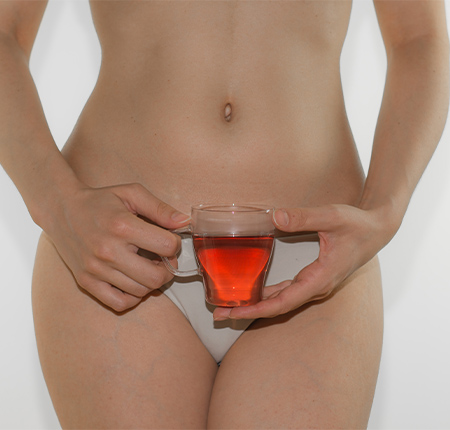
Complications of cystitis
When treated promptly with the appropriate medications, cystitis rarely leads to complications. But if left untreated, the infection can become something more serious. Complications can include:
A kidney infection, which can permanently damage your kidneys
Blood in the urine. This condition is called microscopic hematuria. It usually goes away after treatment. If blood cells continue to appear in the urine after treatment, you may need to see a specialist to find out the cause.
Prevention of Ovarian Cystitis / Cold
If you get cystitis frequently, there are a few things you can try to prevent it from coming back.
What to do:
- Always wipe from front to back when going to the toilet
- Urinate as soon as possible after sex
- Drink plenty of fluids, especially water - so that you urinate regularly during the day
- Shower more often than bathing, thus avoiding contact of the vulva and vagina with cleaning products for too long
- Use a natural cleansing gel or just water to wash your vulva before and after intercourse
- Change an absorbent pad or a full pad immediately
What not to do:
- Do not use perfumed soap, bubble bath, talcum powder or menstrual products with perfumes and harmful ingredients
- Do not use spermicide (in the diaphragm or condom)
- Don't hold back if you feel the urge to urinate
- Do not rush to get up after urinating, try to empty your bladder completely
- Do not drink too much coffee or alcoholic beverages, they can irritate the bladder
- Don't consume too much sugar, it can encourage the growth of bacteria
Frequently asked questions
Do you have questions? We are here to answer you!
How long does the ovarian/cystitis cold last?
Uncomplicated cystitis usually clears up within a few days with proper treatment. Symptoms begin to improve after 3 days. But in the case of chronic cystitis, it can last more than three months.
What to do when you have a urinary infection?
If you notice changes and symptoms such as pain when urinating, frequent urination, small amount of urine passed each time and pain during sexual intercourse, we recommend that you consult your doctor as soon as possible.
Can you have sex when you have a urinary infection?
In short, yes. But although it is possible to have sex, the symptoms can get worse: more pain and more discomfort.
What should you eat when you have a urinary infection?
Even though a natural treatment and a natural diet does not guarantee a cure for cystitis, it can help you get rid of the symptoms and start treating it. It is recommended to try the consumption of foods rich in calcium, cranberries and blueberries, and last but not least natural yogurt, from live yogurt cultures.
For any other question, write to us! And to prevent the appearance of irritation, redness, infections and itching, always choose intimate products that do not contain any unknown, chemical or harmful ingredients: follow us, with 100% organic cotton !
